How bitcoin fans built an utopia free from prejudice and taxes: the story of the failure of the world's first crypto cruise ship Satoshi
The founders wanted to escape the bureaucracy and live by their laws, abandoning life on land, and founding a city in the middle of the ocean, but they knew nothing about cruises and maritime law
The founders wanted to escape the bureaucracy and live by their laws, but they knew nothing about cruises and maritime law.
In 2010, former Google engineer Patry Friedman spoke about how he sees the future of humanity. He proposed rethinking the state and social foundations, abandoning life on land, and founding a city in the middle of the ocean. To carry out his plans, Friedman founded the Institute of Seasteading back in 2008 - thanks to the investments of the founder of PayPal Peter Thiel for $ 500 thousand.
Seasteading is construction and living in communities floating on the high seas outside the jurisdiction of a particular country.
The institute was unable to implement successful projects, but the hope was given by three adherents of staging, who bought a cruise ship in October 2020. Grant Romundt, Rudiger Koch, and Chad Elwartowski wanted to anchor off the coast of Panama and found a "new cryptocurrency society" on board.
They named the liner "Satoshi" after the possible creator of bitcoin and hoped that the ship:
However, building a commune aboard a cruise ship has proven challenging. The open sea only seems free and limitless, but in reality, it is strictly regulated by law, writes The Guardian.
In 2010, former Google engineer Patry Friedman spoke about how he sees the future of humanity. He proposed rethinking the state and social foundations, abandoning life on land, and founding a city in the middle of the ocean. To carry out his plans, Friedman founded the Institute of Seasteading back in 2008 - thanks to the investments of the founder of PayPal Peter Thiel for $ 500 thousand.
Seasteading is construction and living in communities floating on the high seas outside the jurisdiction of a particular country.
The institute was unable to implement successful projects, but the hope was given by three adherents of staging, who bought a cruise ship in October 2020. Grant Romundt, Rudiger Koch, and Chad Elwartowski wanted to anchor off the coast of Panama and found a "new cryptocurrency society" on board.
They named the liner "Satoshi" after the possible creator of bitcoin and hoped that the ship:
- Will become home to digital nomads, startup founders, and early bitcoin adopters
- Will bring together crypto-devotees and seasteaders - two communities equally striving for freedom from conventions, regulation, and taxes.
However, building a commune aboard a cruise ship has proven challenging. The open sea only seems free and limitless, but in reality, it is strictly regulated by law, writes The Guardian.
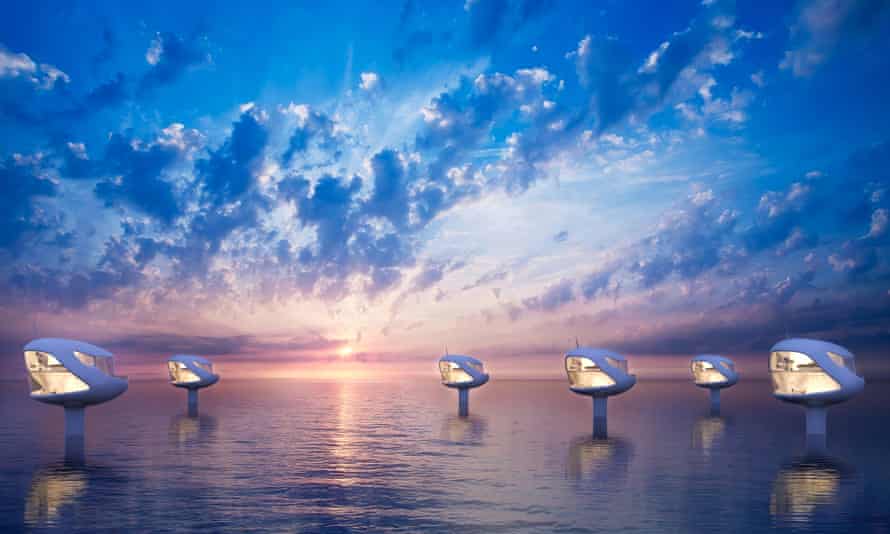
In the late 1990s, water sports enthusiast, son of a hairdresser and Canadian Grant Romundt lived in San Francisco with a group of software engineers. He adored business coach and speaker Tony Robbins and was actively involved in self-development.
In 2009, Romundt began producing videos about hairdressing and then launched the ScheduleBox service so that hairdressers could use it for scheduling. Then he worked 17 hours a day, and by 2016 he had earned enough to spend no more than five hours a month on business.
Romundt returned to Canada, settled in a houseboat, met the dawn on a kayak, and thought that this is how a person should live. During one of the flights, he met with the head of the Systaging Institute Joe Quirk. He learned that the Institute had tried to build communes off the coast of San Francisco as well as a floating island in French Polynesia, but to no avail.
Romundt wanted to keep trying and met two engineers through Quirk: American libertarian Chad Elwartowski and German bitcoin-rich Rudiger Koch. Together, the trio founded Ocean Builders and in early 2018 funded an octagonal floating complex 22 kilometers off the coast of Thailand.
Elvartovski lived in it for two months, until the Thai authorities learned about the construction. They announced a threat to the country's independence and could sentence Elwartowski to life imprisonment and even execution. The engineer had to flee the country, and the building was soon dismantled.
The founders of Ocean Builders didn't give up. In 2019, they contacted the government of Panama and showed the SeaPod project - a complex of individual houses three meters above the water. With government approval, the company built a plant from scratch on Panama's north coast, hired 30 engineers and mechanics, and began building its prototype in early 2020.
In 2009, Romundt began producing videos about hairdressing and then launched the ScheduleBox service so that hairdressers could use it for scheduling. Then he worked 17 hours a day, and by 2016 he had earned enough to spend no more than five hours a month on business.
Romundt returned to Canada, settled in a houseboat, met the dawn on a kayak, and thought that this is how a person should live. During one of the flights, he met with the head of the Systaging Institute Joe Quirk. He learned that the Institute had tried to build communes off the coast of San Francisco as well as a floating island in French Polynesia, but to no avail.
Romundt wanted to keep trying and met two engineers through Quirk: American libertarian Chad Elwartowski and German bitcoin-rich Rudiger Koch. Together, the trio founded Ocean Builders and in early 2018 funded an octagonal floating complex 22 kilometers off the coast of Thailand.
Elvartovski lived in it for two months, until the Thai authorities learned about the construction. They announced a threat to the country's independence and could sentence Elwartowski to life imprisonment and even execution. The engineer had to flee the country, and the building was soon dismantled.
The founders of Ocean Builders didn't give up. In 2019, they contacted the government of Panama and showed the SeaPod project - a complex of individual houses three meters above the water. With government approval, the company built a plant from scratch on Panama's north coast, hired 30 engineers and mechanics, and began building its prototype in early 2020.
How it started
Renders of a SeaPod community
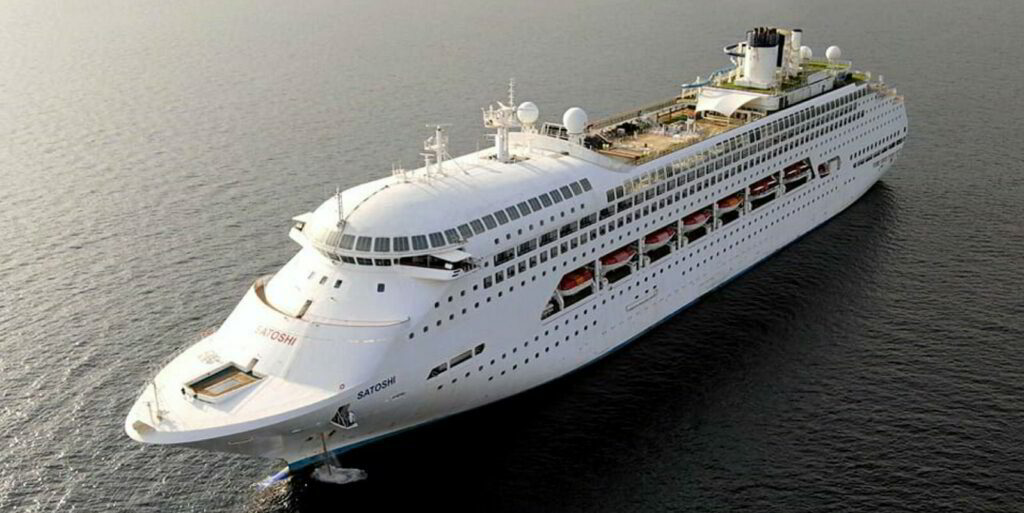
The work, however, was slow: the plant could only produce two houses a month. Then the founders remembered that they had long wanted to buy a cruise ship, but before the pandemic they were all expensive. In October 2020, the founders managed to acquire the ship for $ 9.5 million, although earlier it could have cost them $ 100 million, the newspaper writes.
The trio wanted to make the ship the center of the floating community and connect it to agricultural, production, and park platforms through two rounded tunnels. So that from the air the complex forms the letter "B" - like the logo of bitcoin.
Panama's Ministry of Tourism hoped the company would attract new tourists and help it develop sustainable tourism. And it didn't seem to mind that a whole ship of crypto investors would hold and mine cryptocurrency without paying the government any taxes.
The trio wanted to make the ship the center of the floating community and connect it to agricultural, production, and park platforms through two rounded tunnels. So that from the air the complex forms the letter "B" - like the logo of bitcoin.
Panama's Ministry of Tourism hoped the company would attract new tourists and help it develop sustainable tourism. And it didn't seem to mind that a whole ship of crypto investors would hold and mine cryptocurrency without paying the government any taxes.
Cruise ship "Satoshi"

To enable clients to learn more about the project and register, on October 10, 2020, Elvartovski founded Viva Vivas. And on October 19 he told the Redditors about it. Some rushed to offer help onboard, while others asked where the founders would get electricity, fuel, internet, food, water, and what taxes would be introduced. Elwartowski replied:
At first, Elvartovsky ignored questions about microwaves but soon admitted: it is impossible to install them in cabins according to safety rules. In return, he offered residents a 20% discount on the restaurant and suggested that the kitchen could be rented. "We want entrepreneurs to come up with their solutions and test ideas on board," he wrote.
Elwartowski failed to convince all Redditors. "There are no microwaves, but mining rigs are welcome. Inconsistent scammers" wrote one of them.
The company also announced an auction and planned to rent out 777 cabins from 5 to 28 November 2020. Among them: rooms without windows for $ 570 per month, with ocean views for $ 629, and with a balcony for $ 719.
On the Viva website, Vivas warned that it would check passengers for coronavirus, and promised, thanks to a partnership with the CoinPayments payment system, to support dozens of cryptocurrencies - Bitcoin, Ether, Monero, Electroneum, DigiByte, Tether, USD Coin, and others.
The company did not forbid bringing pets, but it prescribed strict rules for them:
A pet that disturbed the guests more than three times in a month or five times in a year had to leave the board.
- Electricity will be generated by generators, but later the ship will switch to solar energy.
- Wireless internet will come from the land.
- The payment for the "communal apartment" will be included in the commission fee, but will be revised. First, the company plans to improve conditions. Secondly, no one wants to pay for the fact that someone is constantly mining.
- There will be no tax on earnings on the ship.
At first, Elvartovsky ignored questions about microwaves but soon admitted: it is impossible to install them in cabins according to safety rules. In return, he offered residents a 20% discount on the restaurant and suggested that the kitchen could be rented. "We want entrepreneurs to come up with their solutions and test ideas on board," he wrote.
Elwartowski failed to convince all Redditors. "There are no microwaves, but mining rigs are welcome. Inconsistent scammers" wrote one of them.
The company also announced an auction and planned to rent out 777 cabins from 5 to 28 November 2020. Among them: rooms without windows for $ 570 per month, with ocean views for $ 629, and with a balcony for $ 719.
On the Viva website, Vivas warned that it would check passengers for coronavirus, and promised, thanks to a partnership with the CoinPayments payment system, to support dozens of cryptocurrencies - Bitcoin, Ether, Monero, Electroneum, DigiByte, Tether, USD Coin, and others.
The company did not forbid bringing pets, but it prescribed strict rules for them:
- The weight of the animal must not exceed 9 kg.
- You can keep your pet only in cabins with a balcony.
- Hosts are required to purchase a specific brand of the artificial grass litter box.
- A fine of $ 200 was imposed for throwing biowaste overboard.
- Do not make loud sounds for more than 10 minutes.
A pet that disturbed the guests more than three times in a month or five times in a year had to leave the board.
How life on board could have been
On November 29, 2020, Elvartovski announced that Satoshi is ready to accept its first customers in January 2021. Sales were poor, which is not surprising, the newspaper writes. Indeed, even the seemingly ideal candidates doubted the idea. For example, Redditor Luke Parker: loved seasteading and could not work, because he successfully invested in bitcoins. But he was not ready to endure the rocking and huddling in a cabin without a kitchen and with a tiny bathroom.
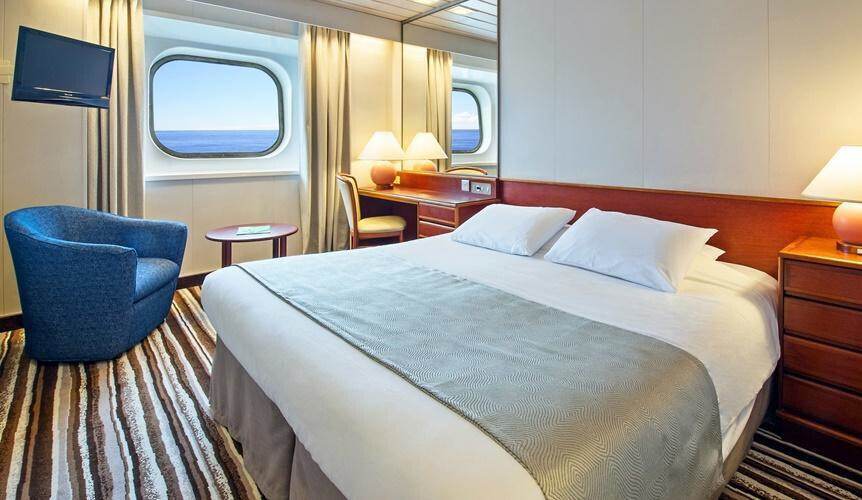
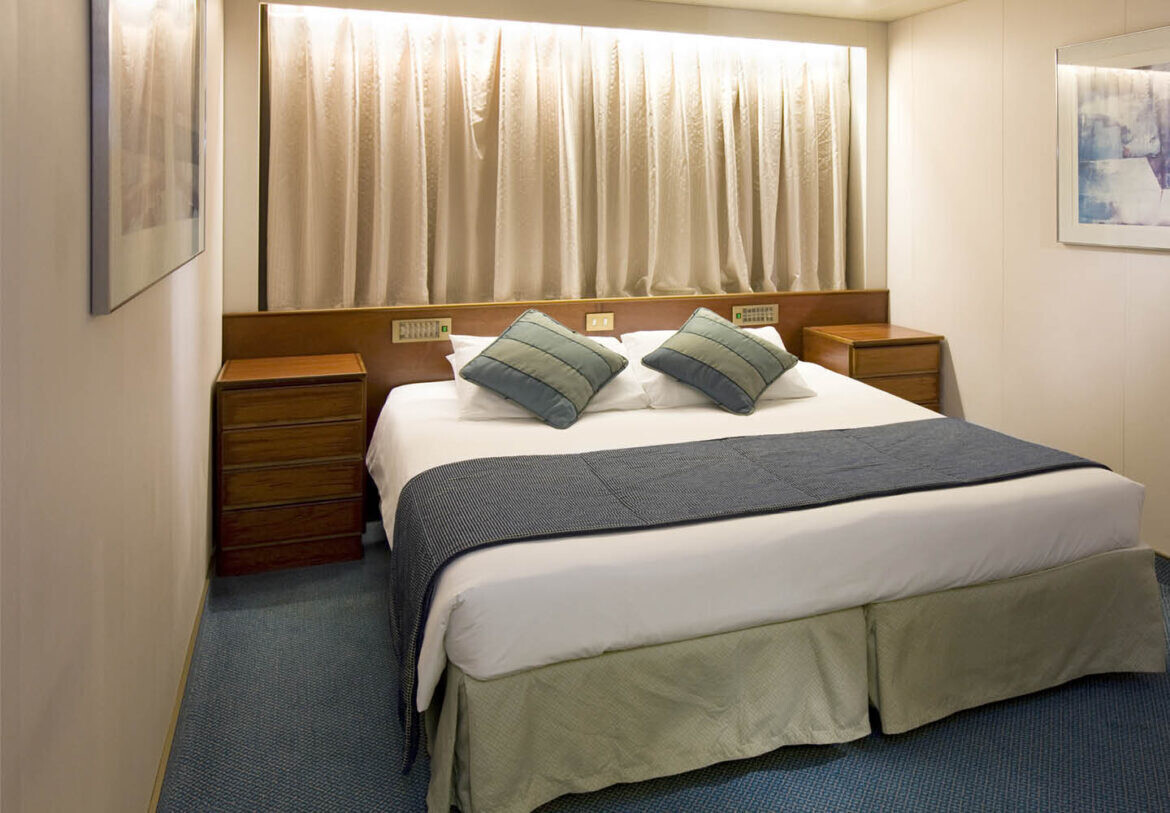
The liner has been sailing since 1991 and over 30 years of work has seen a lot: it almost crashed into a bridge on the Brisbane River, survived an outbreak of swine flu, and in 2020 almost ended up in a landfill after a deal with the cruise company Cruise and Maritime Voyages fell through. But it has never served as a permanent home for two thousand crypto investors.
The founders never managed cruises, so they signed a contract with the management company Columbia Cruise Services and hired 40 employees, mostly Ukrainians: chefs, engineers, and service personnel. And the British Peter Harris was appointed captain.
"Having met Koch, I felt that I would not be enough for a long time. He had many ambitions, but he hated the rules and did not understand how shipping works. Thought it was as easy to fly a cruise ship as a yacht."
Peter Harris
captain of "Satoshi"
To sail, the ship required seaworthiness certificates. Owners usually check them upon purchase to ensure they have at least a few months in stock, but not Oceanic Builders. The trio learned from the crew that Satoshi's certificates had not been valid for a long time. Before crossing the Atlantic Ocean, the crew had to send a ship to Gibraltar to carry out an inspection and renew the permits.
The ship entered the Atlantic waters on December 3. According to Harris, Elwartowski hoped that the Panamanian authorities would allow them to permanently anchor and register the liner as a floating residence, not a ship. For residences, the newspaper writes, there were fewer requirements.
The authorities refused the request, so a new problem arose - wastewater discharge. The founders could not dump them on the territory of Panama. This means that they would have to swim 20 km to international waters every 20 days.
At the same time, insurance companies were in no hurry to cooperate with Ocean Builders and refused without explanation, Romundt said. However, The Guardian put forward its assumptions:
Companies were afraid to insure something they had never worked with - namely, the floating crypto community.
They were wary of the cryptocurrency business in general.
And they were also afraid of the Americans, who are inclined to just go to law.
Romundt realized that the company suffered from what it ran from despots, bureaucracy, and overregulation.
The founders never managed cruises, so they signed a contract with the management company Columbia Cruise Services and hired 40 employees, mostly Ukrainians: chefs, engineers, and service personnel. And the British Peter Harris was appointed captain.
"Having met Koch, I felt that I would not be enough for a long time. He had many ambitions, but he hated the rules and did not understand how shipping works. Thought it was as easy to fly a cruise ship as a yacht."
Peter Harris
captain of "Satoshi"
To sail, the ship required seaworthiness certificates. Owners usually check them upon purchase to ensure they have at least a few months in stock, but not Oceanic Builders. The trio learned from the crew that Satoshi's certificates had not been valid for a long time. Before crossing the Atlantic Ocean, the crew had to send a ship to Gibraltar to carry out an inspection and renew the permits.
The ship entered the Atlantic waters on December 3. According to Harris, Elwartowski hoped that the Panamanian authorities would allow them to permanently anchor and register the liner as a floating residence, not a ship. For residences, the newspaper writes, there were fewer requirements.
The authorities refused the request, so a new problem arose - wastewater discharge. The founders could not dump them on the territory of Panama. This means that they would have to swim 20 km to international waters every 20 days.
At the same time, insurance companies were in no hurry to cooperate with Ocean Builders and refused without explanation, Romundt said. However, The Guardian put forward its assumptions:
Companies were afraid to insure something they had never worked with - namely, the floating crypto community.
They were wary of the cryptocurrency business in general.
And they were also afraid of the Americans, who are inclined to just go to law.
Romundt realized that the company suffered from what it ran from despots, bureaucracy, and overregulation.
The founders realized they knew nothing about cruises
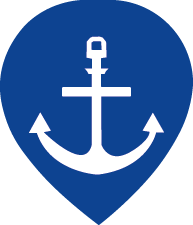
If the founders had six months left, they would have hired top-notch lawyers and found loopholes, but by mid-December, Satoshi had half-crossed the Atlantic and burned gallons of fuel.
The vessel would have to be serviced around the clock even at anchor, and the costs of this could cost the company $ 1 million a month. However, fuel alone was already spending $ 12,000 a day, the newspaper writes. Upon arrival, Koch considered installing a smaller engine, but Captain Harris said that it was impossible to cut a large hole in the hull underwater and not sink the ship.
There was no hope of getting insurance, vouchers were not sold, and the founders could not keep the liner without tourists for several months. They understood that no one would buy the liner during the pandemic, so they sold it to utilizers from India.
On December 19, 2020, Elwartowski announced that Satoshi's journey had come to an end and the team had "lost the fight". Romundt promised potential clients to return the deposit.
Later, the deal with the utilizers had to be terminated. Following the Basel Convention, the company did not have the right to send a vessel from a country party to the agreement to a state that has not signed the convention.
However, the cruise industry is a tight ecosystem, the newspaper writes, so word of mouth helped the founders. The British cruise company Ambassador Cruise Line decided to buy the liner for $ 12 million.
The vessel would have to be serviced around the clock even at anchor, and the costs of this could cost the company $ 1 million a month. However, fuel alone was already spending $ 12,000 a day, the newspaper writes. Upon arrival, Koch considered installing a smaller engine, but Captain Harris said that it was impossible to cut a large hole in the hull underwater and not sink the ship.
There was no hope of getting insurance, vouchers were not sold, and the founders could not keep the liner without tourists for several months. They understood that no one would buy the liner during the pandemic, so they sold it to utilizers from India.
On December 19, 2020, Elwartowski announced that Satoshi's journey had come to an end and the team had "lost the fight". Romundt promised potential clients to return the deposit.
Later, the deal with the utilizers had to be terminated. Following the Basel Convention, the company did not have the right to send a vessel from a country party to the agreement to a state that has not signed the convention.
However, the cruise industry is a tight ecosystem, the newspaper writes, so word of mouth helped the founders. The British cruise company Ambassador Cruise Line decided to buy the liner for $ 12 million.
Maintaining the liner without tourists turned out to be too expensive

After the deal, Elwartowski went on sabbatical, Romundt said, while Koch began building his ship in Panama and continued to work on the SeaPod project. Every houseboat in the SeaPod will have a sunroof. Romundt believes that in the future, people will be able to reach them by air and will also accept delivery.
"Satoshi" meanwhile received a new name - Ambience, or "Atmosphere". "The name matches the elegant vessel, which does not look like a floating apartment building at all," explained Gordon Wilson, Chairman of the Ambassador Cruise Line. There will be cocktails, five-course dinners, exciting shows, and no bitcoins onboard, writes The Guardian.
Read more Interesting facts about the maritime industry collected by Marine Digital
Read more Interesting facts about the maritime industry collected by Marine Digital

TOP 5 factors contributing to lower fuel costs for Shipping companies
Get a presentation with a full description of the features and free pilot project with trial of Marine Digital FOS for 2 months
"Clicking the button, you consent to the processing of personal data and agree to the privacy policy"

Get an overview "The Pathway to Zero Carbon Shipping:
IMO Compliance and CII Optimization through SEEMP" on email and download it for FREE! Leave your email now!
"Clicking the button, you consent to the processing of personal data and agree to the privacy policy, as well as consent to subscribe to the newsletter. "
Аdvantage of Fuel Optimization System from Marine Digital:

Marine Digital FOS can be integrated with other system and third-party's solutions through the API. To implement vessel performance monitoring for any vessel, we are using mathematical algorithms, machine learning and the same equipment as in FOS. The more data we collect from vessels, the more precise reports and recommendations our system will perform according to your individual requirements in fleet management.
If you have any questions about the solutions and the Marine Digital System platform, write to us, we will be happy to answer
If you have any questions about the solutions and the Marine Digital System platform, write to us, we will be happy to answer

Increased business process speed

Reducing to zero the number of errors

Best offer to the clients

Reduction in operating expenses
Have a questions?





